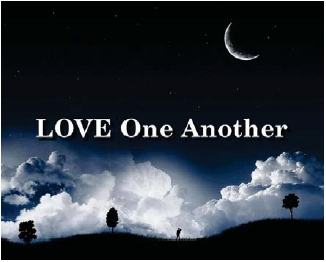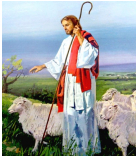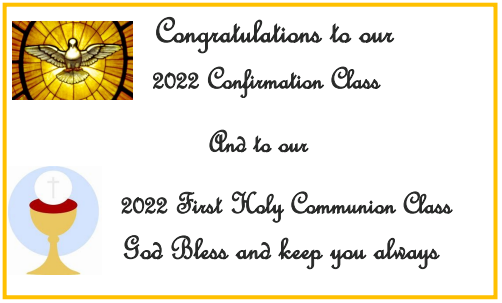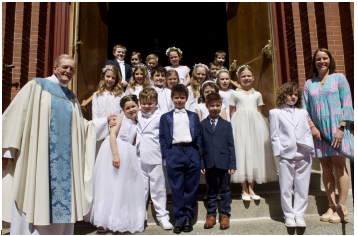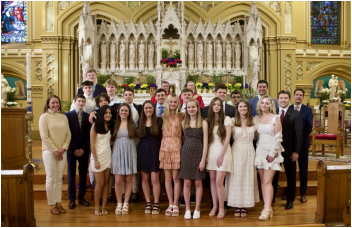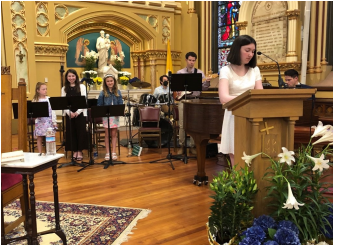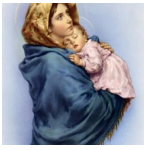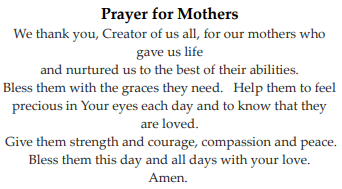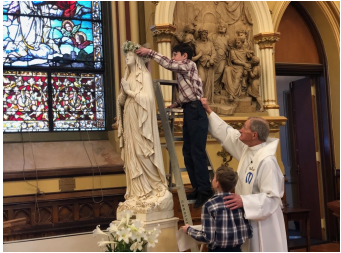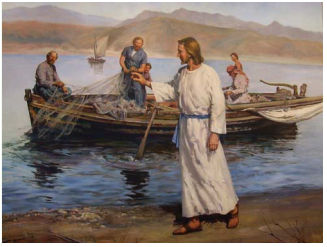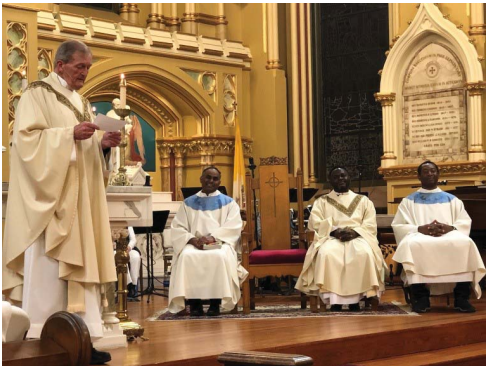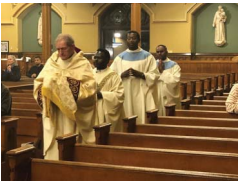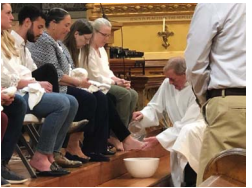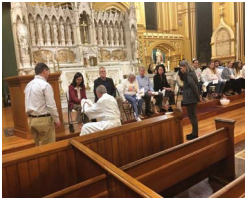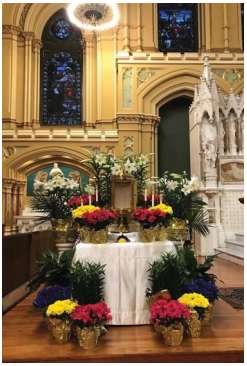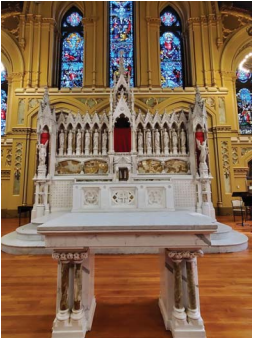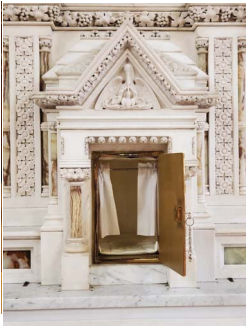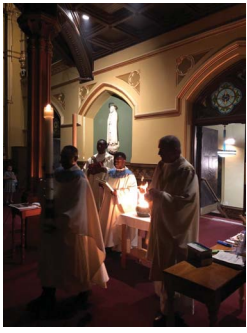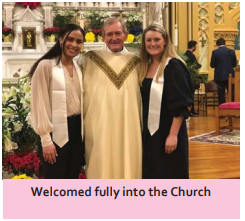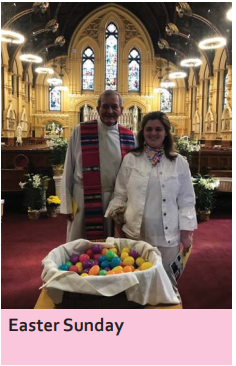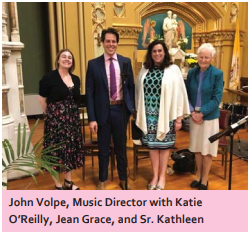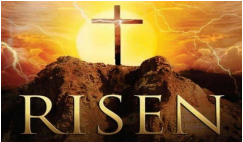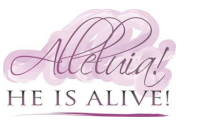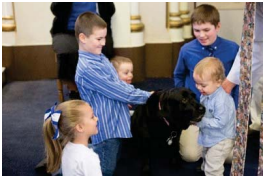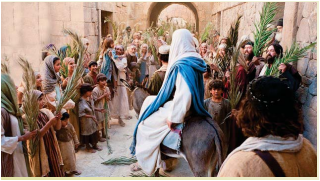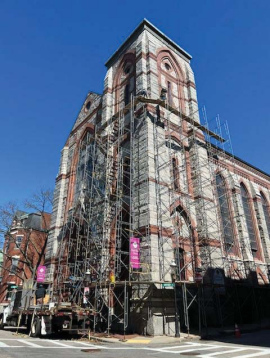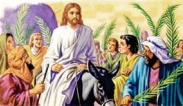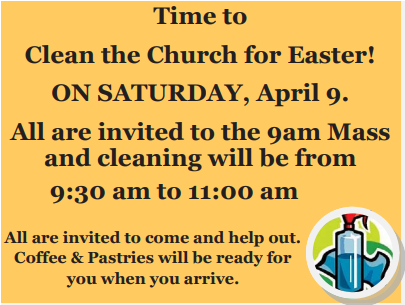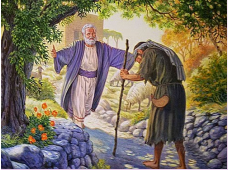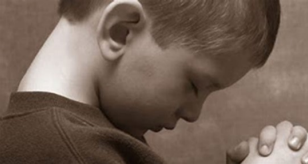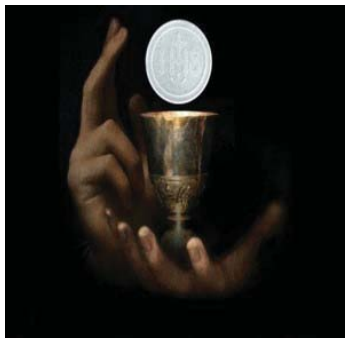Crossing the Threshold
https://stmarystcatherine.org/wp-content/themes/osmosis/images/empty/thumbnail.jpg 150 150 Charlestown Catholic Collaborative Charlestown Catholic Collaborative https://stmarystcatherine.org/wp-content/themes/osmosis/images/empty/thumbnail.jpg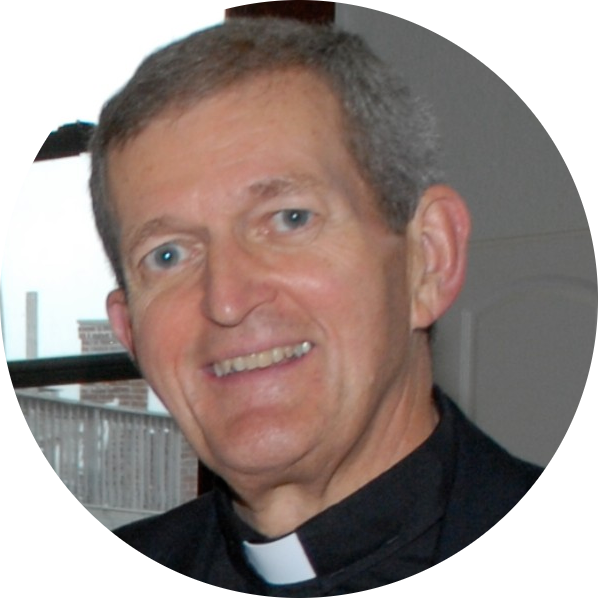
Through the years, most parish priests encounter strangers who, after a moment or two, say to them something like, “Father, I am a Catholic, but ….” This is always the beginning of a personal story wherein they share something of their life journey and seek to explain where God is in that journey; or it may be better said, where they see themselves in relation to God on that journey. No two stories are alike. Sometimes they have been baptized Catholic but no other faith formation has taken place. Other times they have received all of the sacraments yet the commitment to practicing the faith on the home front has been nonexistent. And at other times, they have been raised in the practice of the faith, but then “life happens” and they have fallen away and/or put it aside.
In every circumstance, they acknowledge some measure of incompleteness, some experience of restlessness and see themselves as searching for something more than, to this point, life has offered. Ironic that, in many situations, the persons with whom I am speaking have been “successful” in life, are well educated, and outwardly would appear to “have it all.” It is as if the deception of “having it all” in life bringing happiness has been laid bare. The world and the popular culture hold out this promise – however it turns out to be false. But before this realization sets in, they diagnose that the incompleteness they are experiencing in life is due to not yet achieving everything necessary for the formula to work. Consequently, they work even longer hours, acquire more stuff, earn more and climb higher – in pursuit of that elusive sense of inner completeness and peace they long for.
Then experimentation begins with whatever movement seems to offer the most likely path to completeness. Variations of exercise and fitness rank high, diets and travel are popular, new age music and yoga fit in too – sexual experimentation in different forms, from excess to abstinence and more. There are gurus, guides, webinars, and any number of self-help/promotion products.
Usually, after some combination of failures and often as a result of being in relationships where honesty is called for, they come to recognize that “something is missing”. About that time, thoughts of God and returning to church surface – in fact they have been lingering around for some time – but now are allowed to be considered seriously. For many, this is a difficult threshold to cross, literally and figuratively. Making the hard call to cross it, speaking up, seeking out, and entering in, opens the door to the true path toward completeness.
This journey toward completeness about which I speak is the development of an even deeper relationship with God. It is the spiritual side of our very being, for we are more than flesh and blood. We have a mind and a soul as well. Nourishing only one part of our beings leads to an imbalance, a lack of inner integrity and restlessness. The mystics and ancients have written about this journey for centuries, and contemporary popular authors as well write eloquently about this Holy Longing (Rolheiser).
For many of us who have been down this road, taking the step into a church, opening our heart before God, and seeking guidance from a competent spiritual guide are precisely the steps that truly lead toward satisfying that inner hunger for a more complete life. And eventually, we come to discover that God has been very close to us all along, longing to be in a deeper relationship with us as well.
Fr. Ronan
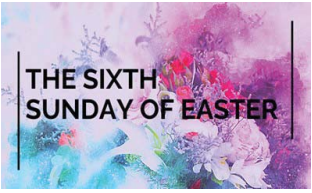
In our first reading, we hear more about the growing pains of the early Church. The Apostles were creating something new ~ a community of believers, disciples of Jesus Christ. There was confusion and discussion about who could be a disciple and differing opinions about what was essential to being a follower of Jesus.
We hear those same discussions even today. However, first Christian did not let differences stand in their way or create divisions among them.
They relied on the Spirit’s prompting and on Jesus’ words “Do not let your hearts be troubled or afraid.”
The message today is rely on the Holy Spirit – the Advocate – who is still with us.

